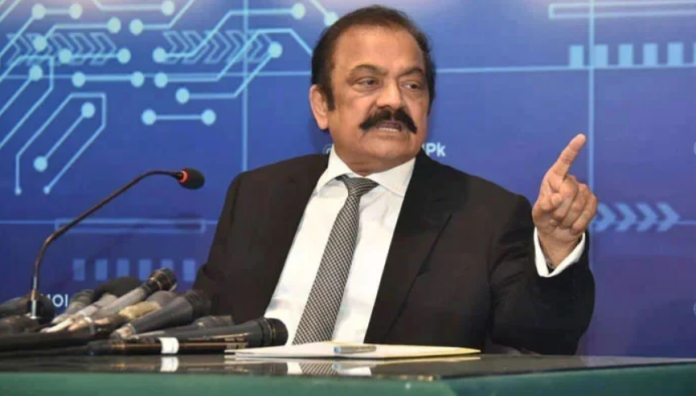Islamabad: Senior Pakistan Muslim League-Nawaz (PML-N) leader Rana Sanaullah said Thursday there is nothing new in a foreign media outlet’s story about the US cipher, which claimed to substantiate former prime minister Imran Khan’s allegations that he was removed under American pressure after his Russia visit. “Though there is nothing new in this story, the investigation needs to held to establish the authenticity of the information or source document,” Sanaullah said after The Intercept claimed to have obtained the secret document that has been at the centre of controversy since March last year.
However, the US publication stated that it was not able to authenticate the document and verify its contents.
The report came to light right around the time when the National Assembly was dissolved, leading to the start of an election process without the Pakistan Tehreek-e-Insaf (PTI) chairman who has been disqualified for five years under corruption charges.
“Potentially, it is a very sinister, treacherous, and seditious act,” Sanaullah said in a series of tweets.
The interior minister reminded the people that Khan, ousted through a no-confidence move he claimed was backed by the US, had a copy of the cable.
“It should not be forgotten that Imran Khan Niazi had a copy of the cipher, which he has not returned and has accepted (on record) that he misplaced or lost it.”
“If proven guilty, Khan should be tried under the Official Secrets Act,” the former interior minister added.
Meanwhile, State Department Spokesperson Matthew Miller, responding to a question during a press briefing in Washington, said he could not verify the authenticity of the document.
“It is reported to be a Pakistani document. I can’t speak to whether it’s an actual Pakistani document or not. Just simply don’t know,” the spokesperson said.
“With respect to comments that were reported, I am not gonna speak to private diplomatic exchanges, other than to say that even if those comments were accurate as reported, they in no way show the United States taking a position on who the leader of Pakistan ought to be.”
Miller further said that the US expressed its concern privately, as well as publicly, to the Pakistani government about the visit of then-prime minister Khan to Moscow on the very day of Russia’s invasion of Ukraine.
“We made that concern quite clear. But as the former Pakistani ambassador to the United States himself has stated, the allegations that the United States has interfered in internal decisions about the leadership of Pakistan are false. As we’ve stated, they’re false. They’ve always been false, and they remain false,” he said.
“If you take all the comments in context that were reported in that purported cable, I think what they show is that the United States government expressing concern about the policy choices that the prime minister was taking.”
He stressed again that it was not in any way that the US government expressed a preference for who the leadership of Pakistan ought to be.
Responding to another question Miller said: “I cannot speak to the veracity of this document.
“Even if those comments were all a hundred percent accurate as reported, which I do not know them to be. They do not in any way show a representative of the State Department taking a position on leadership.”
The follow-up question how other countries might think when the US weighs in — even in a way like this — that it (US) is taking a position, Miller added: “I can understand how those comments, number one, could be taken out of context, and, number two, how people might desire for them to be taken out of context. They might try to use them to advance an agenda that has not representative by itself.”
Asked if that was happening in this case too, the spokesperson said: “A number of people have taken them out of context for political purposes. I won’t speak to intentions, but I think that’s what’s happening.” –Agencies




